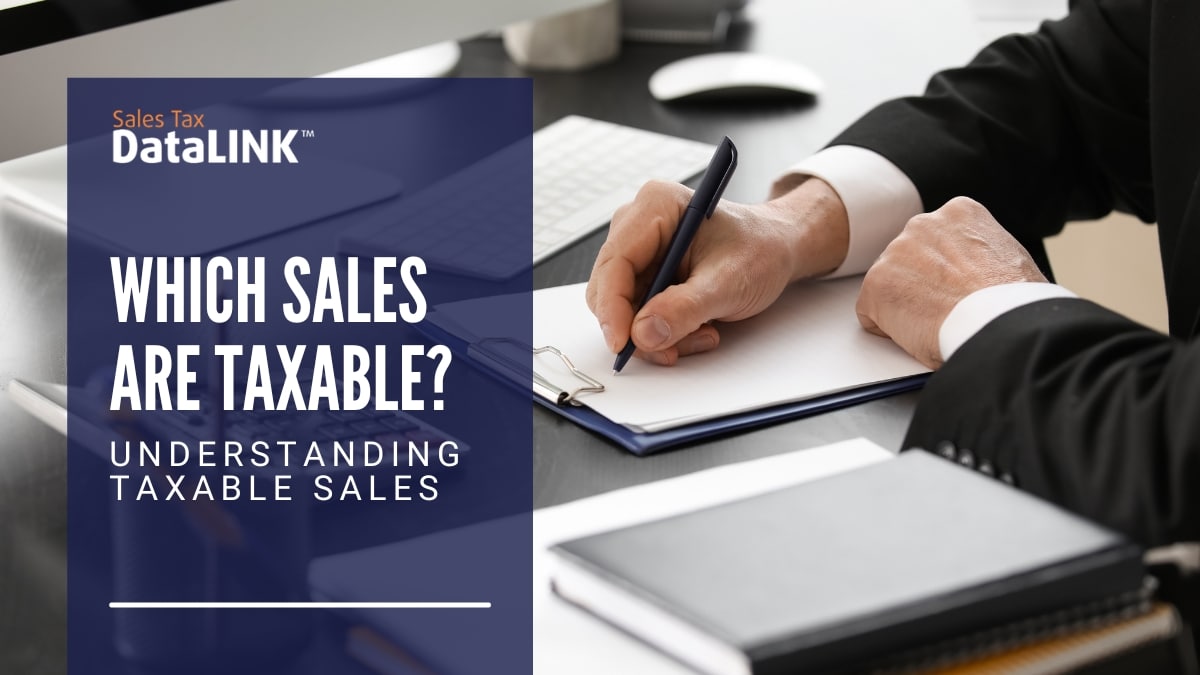Understanding taxable sales is essential after establishing nexus. Even with nexus, if your goods and services are not taxable in a certain state, you are not required to collect sales tax. However, taxability rules vary widely and change often across different states and localities. This article provides guidance on understanding taxable sales, as exemption rules for categories like food, clothing, and services can be inconsistent and illogical across jurisdictions. Be prepared to research specific exemptions and definitions rather than relying on assumptions.
Are you selling tangible goods?
The simplest and most general rule for taxability is that most tangible goods will require the collection of sales tax. If your company supplies cheese, airplanes, or lab equipment, you probably will need to charge sales tax.
However, there are exceptions.
Food is one of the largest exceptions. Most states charge lower rates of sales tax on food, and some do not charge any sales tax on food intended for cooking or eating at home. States are not consistent in their tax rates for food, however, and they also are not consistent in their definitions of food. For example, some states don’t count candy as food. Many do not tax groceries — generally, food for cooking — but they do charge sales tax on prepared food.
They may not agree on what food counts as prepared, though. In some states, any hot food is taxable. In New York, slicing a bagel makes it a prepared food; before it is sliced, it’s groceries.
Here are a few examples of sales tax regulations about food:
- In Arkansas, the taxability of bread depends on whether it was made by the seller or not.
- In Washington state, food is taxable if utensils for eating it are supplied with the food.
- Texas has a rule about taxability for food sold with eating utensils, but it doesn’t apply to bakeries.
- Minnesota classifies cheese sold by dairies as prepared food.
- California doesn’t tax food, but food coloring (such as those used for Easter eggs) is not considered food and is taxable.
What it comes down to is this: the rules and definitions of taxation of food are unpredictable. You can’t just rely on common sense.
Clothing is another area of complexity. While most states charge sales tax on clothing, a few states do not. For states where clothing is taxable, there are plenty of specific rules that generally distinguish between essential clothes and less essential or more luxurious clothing. This is comparable to the idea that groceries are a necessity so they shouldn’t be taxed but prepared food is a treat, so it should be taxed.
Here are a few examples:
- In Texas, belts are tax-exempt but belt buckles are taxable.
- Connecticut charges luxury tax on items priced at $1,000 or more.
- Massachusetts taxes athletic uniforms, but not gym clothes.
- New York has ruled that everyday clothing under $110 is exempt from sales tax, but costumes are taxable.
- In New Jersey, most clothing is exempt but furs are taxable.
In addition to exemptions and taxability that can be explained by different definitions of luxury, there are also differences caused by sin taxes. These are taxes designed to change people’s behavior. These laws, too, are different from state to state and sometimes even from city to city.
https://www.salestaxdatalink.com/blog/creating-nexus-3/
Sometimes goods are exempt as a result of special lobbying. For example, Idaho honey producers are working right now to make sales of beehives tax-exempt. They don’t seem to be claiming that beehives are essential. They just want an exemption. Many exemptions on various goods have come about for political reasons.
There is also currently a lot of controversy and change in digital products. Are they tangible? If not, should they be taxed anyway? And are some kinds more tangible or taxable than others? It’s up in the air in a lot of states — or in the courts.
There are plenty more examples of goods that are sales tax exempt, and common sense won’t tell you what they are. If you sell tangible property, you should find out whether exemptions apply to you.
Are you selling services?
Services are taxed in some states, but some services are likely to be exempt.
States have different ideas of what counts as a taxable service, and sometimes about whether a particular sale is a service, a tangible product, or both. For example, some states consider photography a service, unless the photographer gives the customer a CD with pictures on it. That might turn it into a tangible product. Some states will tax photo files on a CD but not photo files delivered as computer files or on a USB drive.
Piercing ears is usually a service, but ear piercing that includes studs may turn into a tangible product. And sometimes services, in general, are not taxable, but services having to do with products — such as installation or repair of an item — are taxable.
Some states make distinctions about different categories of services, such as personal services like haircuts vs. professional services like accounting. Others tax only specific services or exempt only specific services.
Even more than with tangible property, it is not possible to guess or to deduce whether or not your services will be taxable in any given jurisdiction. You have to find out.
Should you outsource?
Sales Tax DataLINK can provide a taxability audit for your goods and services. Call now! 479-715-4275




